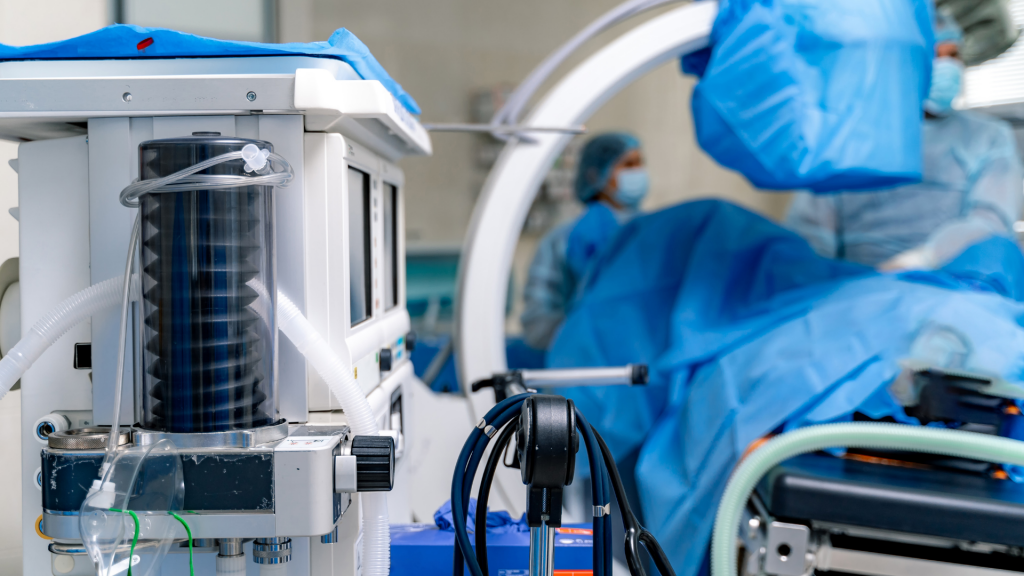When Hank Debey applied for the TEF Entrepreneurship Programme in 2015, his mission was to provide affordable air services to African farmers who wanted to increase their profits by transporting their crops to distant, more lucrative markets.
Hank went to work on Wings4Farmers, producing aircrafts, called levopters, which didn’t rely on fuels and derived their power from wind differentials.
Since the Covid-19 pandemic, a bit of his business changed. The 70-year old engineer and entrepreneur talks to the Tony Elumelu Foundation about his efforts towards curbing the Covid-19 pandemic.
“When COVID came to town, I became paranoid, Hank says. “I was 70 years old and that put me in a high-risk group. Mali only had 3 COVID ventilators for 18 million people and that led me to research, design, and build a ventilator for my personal use. I have tested it on myself many times and it works well, although I have not used it therapeutically. Thankfully, I have not contracted COVID.”
Hank and his team started a 3D printing business and have printed approximately 175 different designs, some of them printed over a thousand times. The company now has three 3D printers, a part of what enabled him to work on a model for Covid-19 ventilators which he says are even cheaper that models used in the western world, but just as effective.
“We’re taking two approaches here: one is to see how we can help with the COVID-19 crisis in India and for the longer term, in Africa there’s a shortage of ventilators whether there’s Covid-19 or not. So let’s get it developed here where people in different countries know how to make this thing, and offer it to the hospitals and make things better.”
Hank has made the Covid-19 ventilator open-sourced, which means anyone who is interested can access the designs and build where ever they are on the continent.
“Many components of our African ventilator are 3D printed,” he says but we have also done the design work to make the ventilator without 3D printing. Somewhat surprisingly, the type of ventilator I chose to base my design on may actually be more effective in treating COVID than conventional ventilators costing $25K to $50K.
“A conventional ventilator is referred to as a Positive Pressure Ventilator (PPV). Our type of ventilator is a Negative Pressure Ventilator (NPV). NPVs were the original ventilators invented in the 1950s to treat Polio patients. PPVs followed soon after because they were cheaper to build. Now the tables have turned. PPVs are expensive and NPVs are cheaper. More importantly, NPVs are far safer to use than PPVs and they don’t require highly trained medical personnel to implement and monitor. That makes NPVs well suited for countries with underdeveloped medical infrastructures.
“We are focusing primarily on entrepreneurs who start businesses with a 3D printer. They share the machines, they make things if they have got an idea, and there are many in India so I am trying to get it out to them so they can make the design very quickly. The training will be about 4 days.
“We will continue to improve it but I think there are people that can build it better because I’m not the best builder in the world.
“It would be great if there are other entrepreneurs in other parts of the world who are willing to build this and I will try to source the fund for the work that they do so we can see if this saves lives.” Ventilators can be lifesaving for people with severe respiratory symptoms as they can provide air with an elevated oxygen content and create pressure in the lungs to assist with breathing.
In June 2015, Mr. Elumelu met with Hank and his team at the Radisson Blu Hotel in Bamako, a moment Hank says was the most encouraging at the time. “I am proud to say that since that time, these young men have gone on from working with me to very rewarding careers. I can say without a doubt that our experiences with the Tony Elumelu Foundation opened the eyes of these guys to opportunities and kindled a sense of “anything is possible”.
“It would be great to get the word out about our African ventilators so that perhaps entrepreneurs can join our effort,” Hank says.
Hank and his team are looking to have more awareness in surrounding communities on the benefits of digital manufacturing, in order to inspire more interest and creations in Malian ecosytyem.


